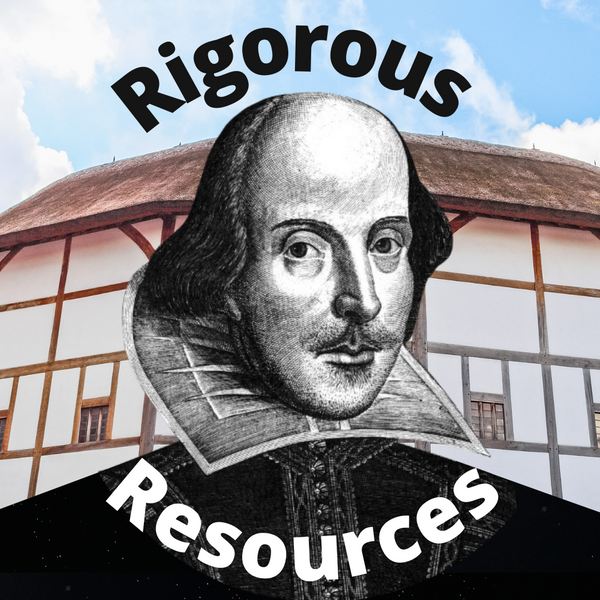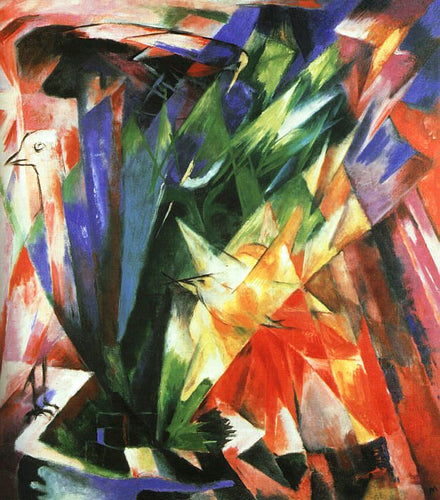chirping with excitement, the bigger, its breast blazing, silent
in light-winged earnest chase — when, out of nowhere
over the chimneys and the shivering front gardens,
flashes a sparrow hawk headlong, a light brown burn
scorching the air from which it simply plucks
like a ripe fruit the stopped robin, whose two or three
cheeps of terminal surprise twinkle in the silence
closing over the empty street when the birds have gone
about their own business, and I began to understand
how a poem can happen: you have your eye on a small
elusive detail, pursuing its music, when a terrible truth
strikes and your heart cries out, being carried off.
Eamon Grennan’s “Detail” is another poem that takes the art of poetry as its principle subject. Like the poem by Howard Nemerov discussed in a previous post, Grennan’s “Detail” uses the motif of flight to convey how poetry can transport readers into a state of aesthetic absorption. Yet Grennan’s poem suggests that poetry can also interrupt such states of absorption by confronting readers with troubling truths. Grennan implies that a good poem can subvert the reader’s expectations, interrupt our pleasure, and pierce us with an incisive — unpleasant but important — revelation.
In the first four lines lines of “Detail,” two medium-sized songbirds — a robin and a finch — engage in a playful game of “light-winged” chase (3). The two birds soar and dive between the yards and gardens, skimming along currents of air and chasing one another in flirtatious play. The actions of the two birds establish a mood that seems playful, weightless, carefree. This jovial mood is reinforced by the alliterative accord found in phrases like “fly after a finch” and “breast blazing” (1, 2). Absorbed in watching the two birds, the speaker adopts a similarly playful mindset, as suggested by the syntax of the first four lines. For the speaker allows himself to fly off on tangents such as the one introduced by a dash in the first line.
Yet the mood of the poem shifts abruptly and irrevocably when a predatory hawk swoops down and “plucks” the robin out of thin air. The devastating impact of the poem’s middle lines is achieved thanks to Grennan’s deft manipulation of imagery, line breaks, and syntax. The hawk that interrupts the robin’s “light-winged” play is depicted not only as arriving in a “flash” but as “scorching” the air like a “burn.”
Writing about his own first encounter with Grennan’s “Detail,” Theodore Deppe recalls being stunned by Grennan’s decision to replace the word “bird” with “burn.” Deppe recalls,
When I first heard Grennan read ‘Detail’ at a poetry festival in Galway, it seemed the perfect poem with which to begin that autumn’s creative writing class. A colleague of mine had asked Grennan for a copy of the then unpublished poem, so before my first lecture I had my friend read ‘Detail’ to me over the phone. Reading the lines back to him, I’d just reached ‘a light brown bird / scorching the air . . .’ when my friend said, ‘No, no, no! It’s “a light brown burn / scorching the air . . . .”’ And I began to understand how a poem can happen. The poet thinks he knows what he’s about to say, and suddenly another image — another truth — suggests itself and he follows.”[1]
There's a certain irony embedded in the phrase “light brown burn,” for it is the hawk that eradicates all lightness from the poem. Indeed, Grennan’s decision to replace the phrase “light brown bird” with the phrase “light brown burn” has the effect of changing the meaning of the word “light” from a measure of weight to a measure of color saturation.

Of course,"burn" is just one of many well-chosen words in this poem. The verb “plucks” suggests the ease and casualness — to say nothing of the finality — with which the hawk seizes is prey. The robin is given no more thought than a berry which is ripe for the picking. And Grennan’s decision to break the sixth line on the word “plucks” gives readers the experience of being suspended, holding our breath, waiting to find out what the hawk has seized. Our awareness of what has just happened — of precisely what has been plucked — arrives latently, after the line break. In this way, it resembles the arrival of unexpected or disturbing news, which often takes a moment to sink in and may leave the recipient in a state of shock.
“Detail” becomes an ars poetica when, in the last four lines, Grennan re-frames the event as an example of “how a poem can happen” (11). How does this poem offer a message about the art of writing poetry? In the same way that the robin is described as being engaged in “earnest chase” after the “smaller bird,” the writer is described as having her “eye on a small / elusive detail,” (1, 3, 11-12). Grennan establishes a visual parallel between the red-breasted “robin” who gets “plucked” out of the air and the red “heart” of a poet — the second-person "you" — who “cries out” and is “carried off” (6, 13).
Does the poem establish a parallel between the robin that's taken by “surprise” and the poet who's arrested by a “terrible truth” (8, 12)? Are we meant to understand that the poet's heart “cries out” in the same way that the robin emits a few “cheeps” while being “carried off”? What would it mean to acknowledge that writing a good poem also entails making ourselves vulnerable to the prospect of feeling pain? Of experiencing not just light-winged imaginative play but also troubling truths?
If this poem is about how to write poetry, its message would seem to be that a poem arrives “out of nowhere” (3). It “flashes” like a hawk swooping "out of nowhere" — in all its unexpected suddenness. All you can do is put yourself in an open and receptive frame of mind, cultivate a free-floating attention, and prepare to be surprised by the fortuitous arrival of a poem!
Robert Frost similarly observed that writers must open themselves to being surprised if they want their readers to experience that same feeling: “No surprise for the writer, no surprise for the reader.”[3] To be surprised is to be released from the shackles of preexisting expectations. The poem arrives; it cannot be forced. It cannot be pursued. Frost describes the pleasure of writing a poem as “the surprise of remembering something I didn’t know I knew.” The poem will be what you didn’t know you were looking for, the product of unconscious knowledge.
Perhaps you expected that the poem would be light and playful; but it turns out to be sharp, striking, ruthless....
[1] Theodore Deppe, “The Journey a Poem Makes.” In Jayne Steel, ed., Wordsmithery: The Writer’s Craft and Practice. Palgrave Macmillan, 2006. 76.
[3] Robert Frost, "The Figure a Poem Makes." Collected Poems of Robert Frost. New York: Holt, Rinehart, and Winston, 1939.
Cover Image: Franz Marc, Birds (1914)
Inset Image: Franz Marc, The Dead Sparrow (1905)


1 comment
I love Grennan’s poem. One in my files I relied on to move me to unearth a poem of my own that was set free by reading, in this case, Grennan’s poem, Detail. When that occurs with me as a poet, I select a phrase from the inspiring poem as the title and provide a link where the reader of my poem can read the one that inspired mine. I think of it as sharing the wealth and thanking the poet who inspired me to access the poetry in me that was waiting to set flight.